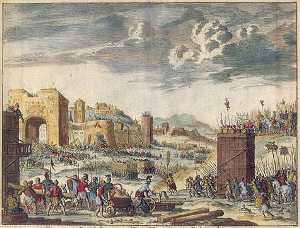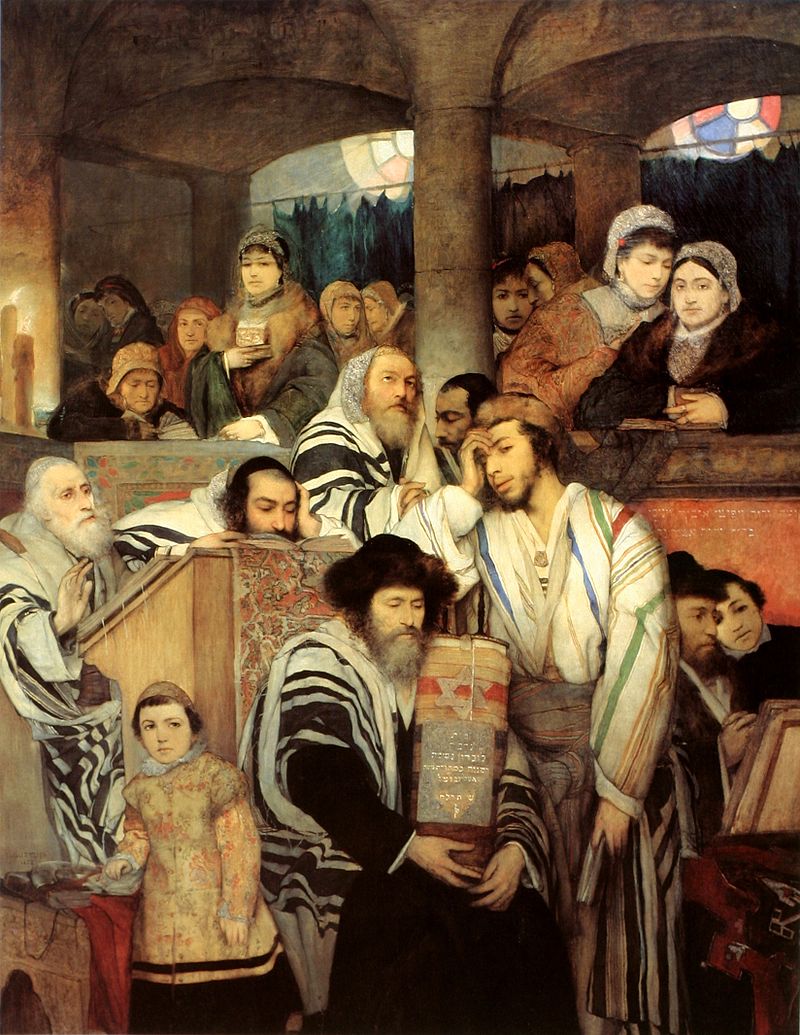
On the surface, the Purim story is pure narrative, a story like any other story. The execution of Vashti and the rise and fall of Haman seem like the typical kinds of political intrigue that went on in the ancient world. Only at the end, when the plot has been spun out completely, do we see understand that it is the story of miraculous deliverance.
I once read an article by a great historian who claimed that the entire story of Purim is a myth. I was young and foolish then, so thinking I could somehow change his mind, I wrote him a letter.
“The Scroll of Esther is a historic book with names, dates, places, and eyewitnesses,” I wrote. “It has been kept alive by a people that is not noted for their naiveté or primitive beliefs, yet you discard it as a historic record. But when someone scribbles something on a cave that you can’t even decipher, that you consider history.”
He wrote me back and answered, “Your bias is showing.”
But really, he was just as biased. Like so many in the Western world, he refused to consider the Bible a legitimate record of man, even though all archaeology in the Middle East is based on the Bible. The archaeologists do their excavations according to the Bible’s instructions, and they find what they’re looking for. Nevertheless, the Bible is dismissed as legitimate history.
To continue the story, King Ahasuerus is beset by many problems in his empire, one being the return of the Jewish people to the Land of Israel. His predecessor had granted permission for the Jews to return, and now Ahasuerus is under pressure from Mordechai to allow the Holy Temple to be rebuilt. Ahasuerus does not want to give into that pressure, but he does not want to stop Mordechai directly either. He doesn’t know what to do, and therefore, he appoints Haman as his advisor and prime minister.
Haman prided himself on being an expert on “the Jewish problem.” Throughout the long history of anti-Semitism, almost without exception, every leader who made a name for himself for his anti-Semitic “accomplishments” was obsessed with the Jews. Jews were everywhere, the root of every problem. That was Haman’s worldview. Not only was he opportunistic, cunning, and cruel, he was possessed by a passion to destroy the Jewish people.
The Talmud teaches that no man dies having half of what he wanted. Our entire economy is built on it. Every new invention or gadget is something I must have. Then, when I have it, I realize that it really doesn’t do much for me.
So Haman is not satisfied that as prime minister, millions of people bow down to him. As long as Mordechai refuses to bow to him, it is more than he can bear. Mordechai, in dismissing his power, puts true values into perspective, and Haman cannot stomach it. Powerful people like having yes-men.
When Haman sees that Mordechai will not bow to him, it drives him into a rage. Imagine. Ten million people bow to him, and one person doesn’t. Instead of being overjoyed, he is fit to kill. All his obsessive anti-Semitism comes to the fore, and he proposes the complete destruction of the Jewish people.
Haman understands Ahasuerus very well. He knows that Ahasuerus will not mind the elimination of the Jewish people, but he will miss all their taxes. Therefore, he bribes him with ten thousand talents of silver, which is a fortune of money. When the king hears there won’t be a shortfall in his budget, he has no problem with it. People are expendable; money is not. In our era of uncontrolled and unbalanced budgets, both personal and national, we can still see that.
But Haman oversteps himself. He doesn’t quite realize the paranoia that lies within Ahasuerus. So he goes blithely along his way and sets a date for the destruction of the Jews. In his own mind, he is the king. But this will be his undoing.











